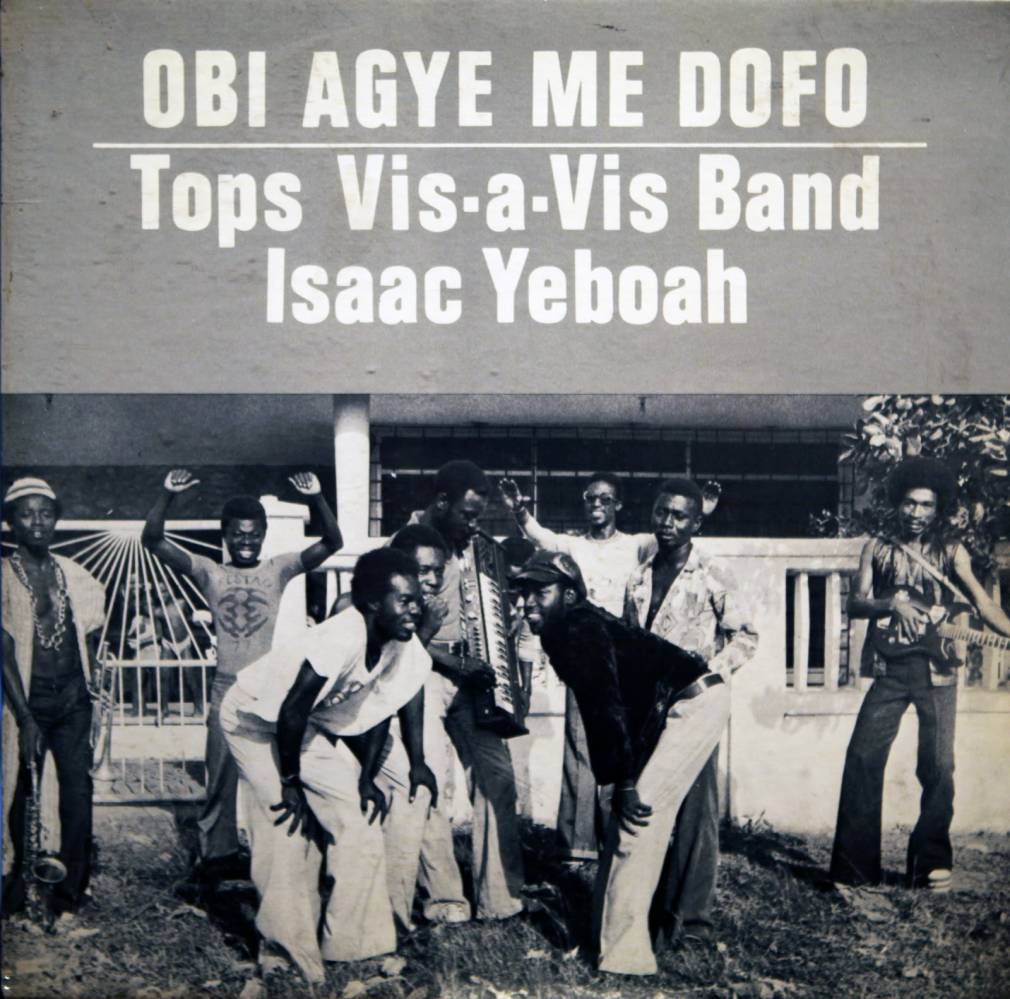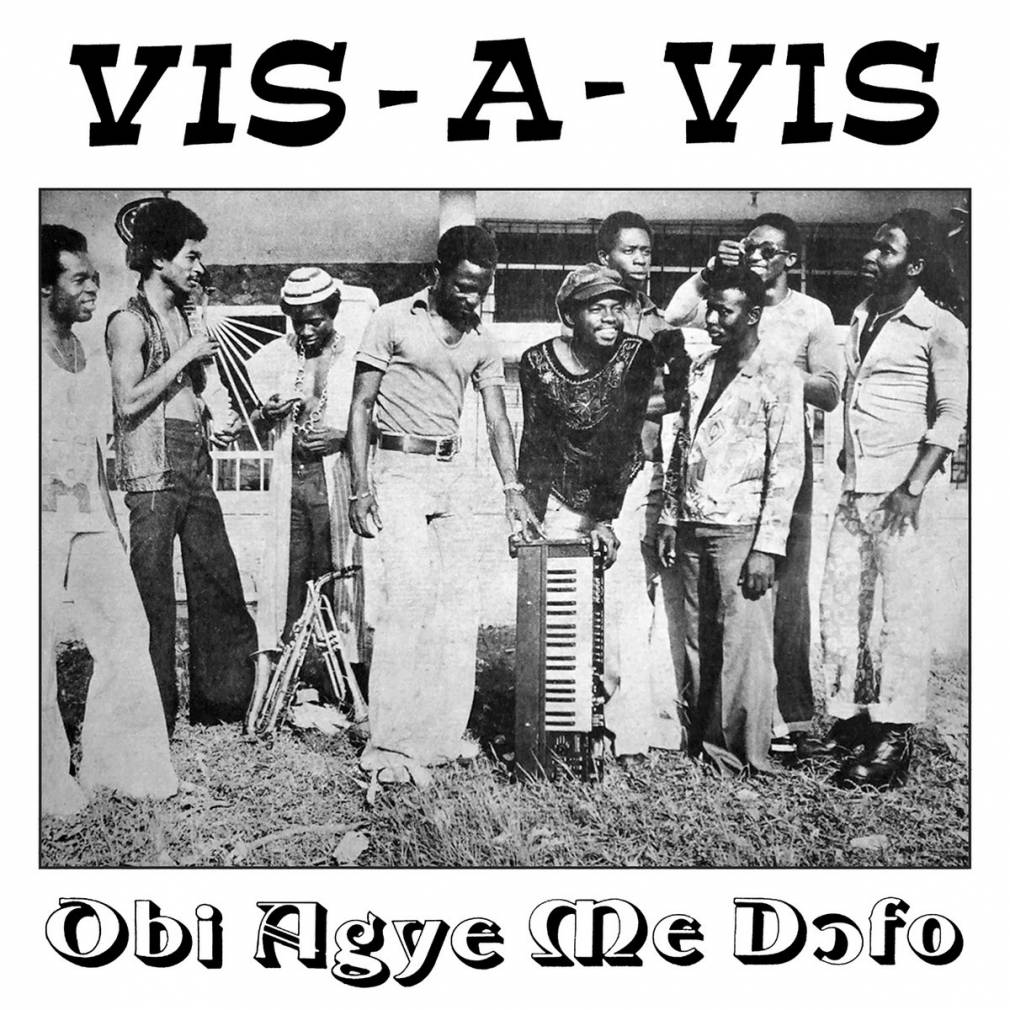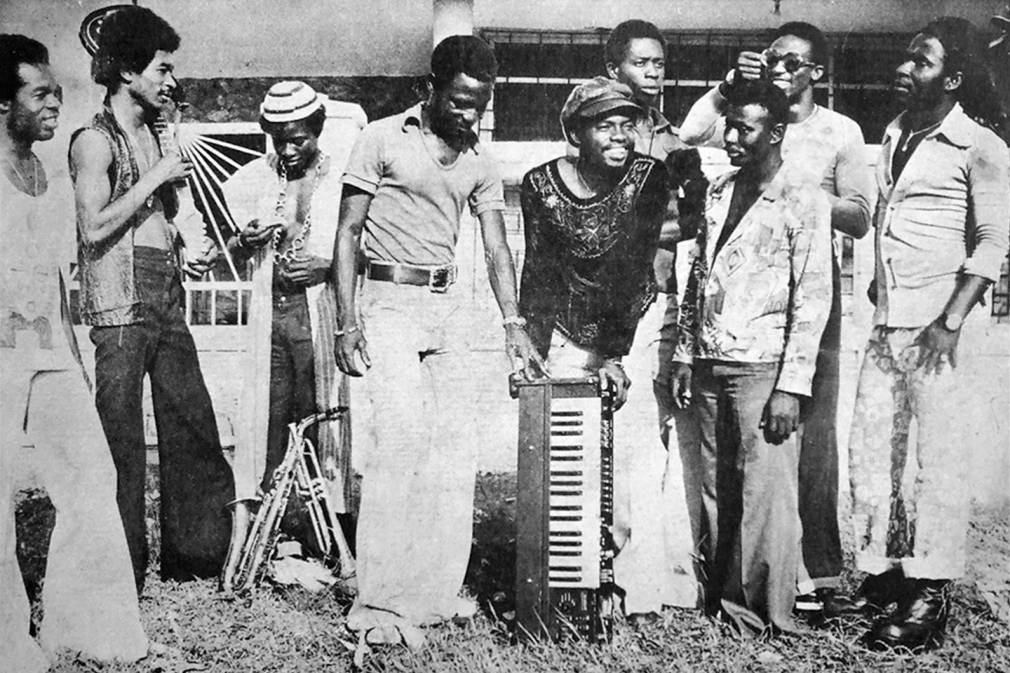As Canadian label We are Busy Bodies reissues Obi Agye Me Dofo (1977), one of the most famous LPs of the glorious highlife Ghanaian band Vis-a-Vis, PAM reached Anthony Yeboah, singer and original member of the band. Interview.
There are a lot of unspoken heroes that exist in our African music space, many of which need to be given their flowers while they can still smell them… Being tasked to interview Anthony Yeboah of the legendary Vis-A-Vis band, I felt honored. I grew up to their music being played on a weekly basis by my mother, usually on weekends, just before the family got together to eat fufu. It seemed almost like a family ritual. Besides being familiar with a few songs, I realized there wasn’t so much I knew about these West African music stalwarts. In gathering information for this article I got to learn so much about their journey, achievements, and the plans this quintessential band has for the future.
Vis-A-Vis, a highly regarded collective of West African musicians churned out 13 solid albums since they began their 8-year musical journey which began in 1975 and ended in 1982. Of their many projects, Obi Agye Me Dofo remains the most sought after even to this day. Vis-A-Vis was led by vocalist Isaac “Superstar” Yeboah featuring Sammy Cropper on guitar, Slim Manu on bass and Gybson “Shaolin Kung-Fu” Papra on drums. The iconic band was a driving force that helped propel K. Frimpong to fame in the 1970s making him one of Ghana’s most popular musicians at that time. On few of K. Frimpong’s albums, they are mistaken for The Cubano Fiestas, a recording band that assisted Frimpong with some of his music.
As We Are Busy Bodies begins its rollout of the Vis-A-Vis catalog, it will also simultaneously release another essential album by the group, 1976’s Odo Gu Ahorow. Original copies of both LPs are scarce and in great demand, with Obi Agye Me Dofo briefly issued as an LP in the US in 1980, and again in 2011 by Continental Records. Along with the Frimpong albums, they remain some of the most sought after West African records from the golden age. These reissues have been handled with the utmost respect — every detail has been given strict attention and care, with albums being remastered by Senior Mastering Engineer, Noah Mintz at Lacquer Channel in Toronto, Canada.
My condolences on the passing away of Slim Yaw Manu. Did you know him or any of the other band members prior to its formation?
Thanks for your condolences, Godwin. I am deeply touched. We’ve known each other since 1968. We were both in a band called The Starlite.
Who were you closest to in the band?
I’ll say we were all quite close. We had a chance to learn about and teach one another. The strong connection we developed binds us to this very day.
One of the reasons why many artists choose to go solo is because they find it difficult to work in tandem with other musicians. Personally, did you ever have such a problem with the band?
Isaac Yeboah, Slim Yaw Many and myself Anthony Yeboah broke away from our initial group (The Starlite) because we and our leader DY Korsah shared different ideologies in how the band should operate so we departed to form our own band initially known as Aprukusu.
In the span of 8 years (1975-1982), you released 13 albums. That’s a pretty impressive feat! Tell me how Vis-A-Vis started.
As I implied earlier, we were very eager to make it big in the music industry. After we left The Starlite band, we moved to the capital (Accra) from Kumasi to form a group called Aprukusu (the electric fish). We later renamed the band Vis-A-Vis and included other instrumentalists.

You are a world-renowned and well-traveled musician. Do you feel the same love when performing outside of Ghana or Africa?
We got to meet and connect with a much bigger audience whenever we performed outside the country but I can’t compare the love we receive when performing in Europe to performing in our beloved motherland! Yes, I feel good when performing outside Ghana but I feel amazing when I’m in Ghana!
What do you think about the current music scene in Ghana and do you think afrobeats has evolved?
Indeed there has been some growth. The only thing I dislike about the current state of affairs of our Ghanaian music is the unnecessary use of profane lyrics. It has become very rampant and I think it doesn’t speak so well of us as a people. Afrobeats as we know today has taken a completely different turn but authentic highlife and afrobeat are still in the minds of the older generation.
Out of your 13 amazing albums, why did you decide to reissue Obi Agye Me Dofo?
The song “Obi Agye Me Dofo”, which translates to “someone stole my love interest” is really dear to my heart. I used to perform it anytime I got on stage. It is actually based on a real-life experience. Somebody did actually snatch my lover from me in Accra. This inspired the composition of that song.
Give us a preview of what to expect with the rerelease. Should we expect any major alterations or additions?
There wouldn’t be any major changes. I believe that the body of work should be left as it is so as to preserve the originality of the compositions and the instrumentals.
Obi Agye Me Dofo, out now on We Are Busy Bodies.





